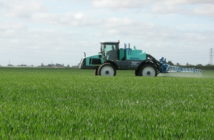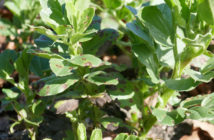The European Commission has approved under the EU Merger Regulation the proposed acquisition of Syngenta (based in Switzerland) by ChemChina. The approval is conditional on the divestiture of significant parts of ChemChina’s European pesticide and plant growth regulator business.
Commissioner Margrethe Vestager, in charge of competition policy, said: “It is important for European farmers and ultimately consumers that there will be effective competition in pesticide markets, also after ChemChina’s acquisition of Syngenta. ChemChina has offered significant remedies, which fully address our competition concerns. This has allowed us to approve the transaction.”
Today’s decision follows an in-depth review of the transaction. Syngenta is the leading pesticide supplier worldwide. ChemChina is currently active in pesticide markets in Europe through Adama, its wholly-owned Israel-based subsidiary. Unlike Syngenta, which produces pesticides based on active ingredients it has developed itself, Adama only produces generic pesticides based on active ingredients developed by third parties for which the patent has expired. It is the world’s biggest producer of such generic pesticides.
The Commission’s competition concerns
The Commission had concerns that the transaction as notified would have reduced competition in a number of existing markets for pesticides. Furthermore, the Commission had concerns that the transaction would reduce competition for plant growth regulators. The Commission’s investigation focused on competition for existing pesticides, since ChemChina does not compete with Syngenta for the development of new and innovative pesticides.
Pesticides are products used in agriculture to control pests that can harm crops. They can be broadly categorised into fungicides (targeting diseases), herbicides (targeting weeds), insecticides(targeting insects), and seed treatment products (targeting insects and diseases at seed level).
Plant growth regulators are used in agriculture to slow or stimulate a crop’s growth and development.
The Commission’s investigation showed that the parties would have held high combined market shares for a number of pesticides and for certain plant growth regulators, with few other competitors remaining. Adama is a close and important generic competitor of Syngenta in many of these markets. In particular, the Commission found that the takeover would have significantly impeded effective competition in the following markets:
Pesticides,namely
o fungicides for cereals, fruits, oilseed rape, and vegetables in a number of Member States;
o herbicides for cereals, corn, sunflower, and vegetables in a number of Member States;
o insecticides for cereals, corn, fruits, oilseed rape, and vegetables in a number of Member States;
o seed treatment products for cereals and sugar beet in a number of Member States; and
Plant growth regulators for cereals in a number of Member States.
The commitments
ChemChina offered a set of commitments, which address the Commission’s competition concerns in full. In particular, they will divest:
a significant part of Adama’s existing pesticide business, notably fungicides for cereals, fruits and oilseed rape, herbicides for cereals, corn, sunflower and vegetables, insecticides for cereals, corn, fruits, oilseed rape, and vegetables and its seed treatment products for cereals and sugar beet;
some of Syngenta’s pesticides, notably fungicides for vegetables and herbicides for cereals, vegetables and sunflower;
29 of Adama’s generic pesticides under development and access to third parties to studies and field trial results for these products;
a significant part of Adama’s plant growth regulator business for cereals; and
all relevant intangible assets underpinning the divested pesticide and plant growth regulator products. They will also make available relevant personnel.
The Commission concluded that the divestment package will ensure that effective competition is preserved in pesticide and plant growth regulator markets after the takeover. This is because in all product markets with problematic overlaps ChemChina will divest either Adama’s or Syngenta’s product. The sale of Adama’s products under development also ensures the viability and competitiveness of the divested business on a lasting basis. The buyer of the divested assets will be able to compete sustainably with the parties to the benefit of European farmers and consumers. As a result, the Commission has approved the transaction.
International cooperation
The Commission has been in close contact with a number of other competition authorities, which are also reviewing the transaction. In particular, the Commission has had regular exchanges with the competition authorities of Brazil, Canada, China, Mexico and the US Fair Trade Commission.




